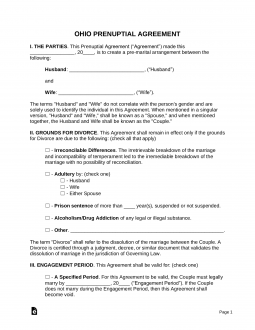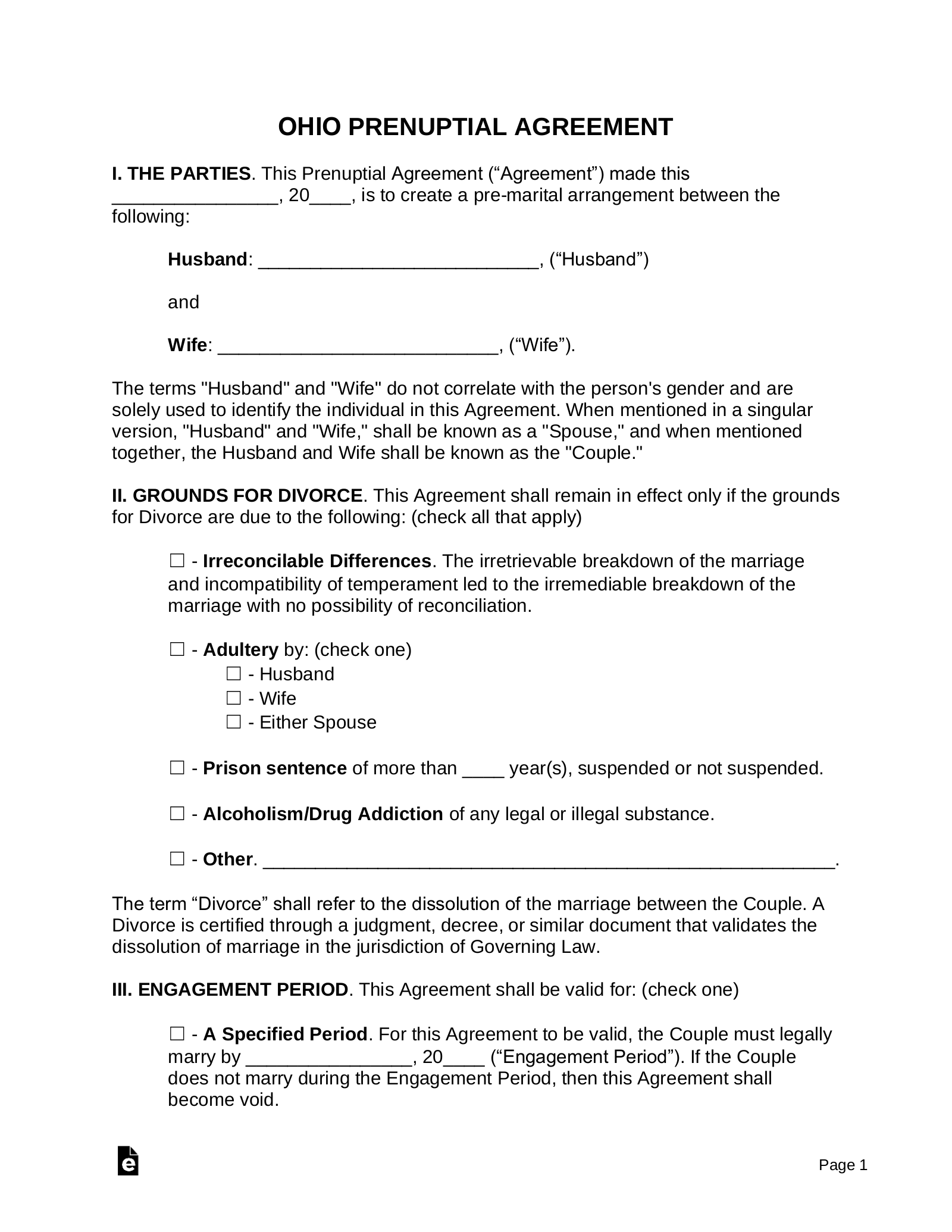Updated May 17, 2023
Or use ContractsCounsel to hire an attorney!
An Ohio prenuptial agreement defines the property rights and financial interests of two future spouses. The agreement will authorize the distribution of assets between the two parties in the event that the marriage dissolves. When drafting the document, the prospective spouses must disclose to each other the full extent of their assets and debts. The couple will then formulate marital provisions which may include the disposition of property, support payments upon the death of a spouse, alimony upon divorce or separation, and the rights to an inheritance.
Signing Requirements
Source: § 1335.05
No action shall be brought whereby to charge the defendant . . . nor to charge a person upon an agreement made upon consideration of marriage . . . unless the agreement upon which such action is brought, or some memorandum or note thereof, is in writing and signed by the party to be charged therewith or some other person thereunto by him or her lawfully authorized.
Laws
Case – Vanderbilt v. Vanderbilt, 2013-Ohio-1222
In Ohio, prenuptial agreements that govern the disposition of property upon divorce are valid “(1) if they have been entered into freely without fraud, duress, coercion, or overreaching; (2) if there was full disclosure, or full knowledge and understanding of the nature, value and extent of the prospective spouse’s property; and (3) if the terms do not promote or encourage divorce or profiteering by divorce.”
Case – Gross v. Gross, 11 Ohio St.3d 99 (1984)
These agreements may include: provisions concerning the disposition or devolution of property and payments for sustenance upon the death of one of the spouses; provisions for the distribution of property and the sustenance or maintenance of one or other of the spouses, most usually the wife, upon a separation or divorce; or a combination of all of these concerns between the parties.


